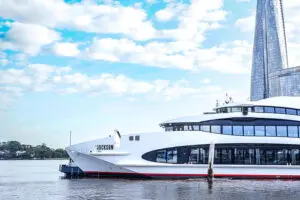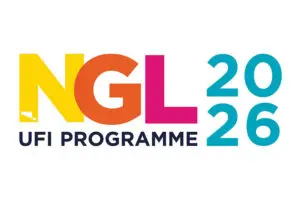The inaugural Global Trends Report from Flight Centre’s meetings and events arm collected insights from over 200 corporate organisations around the world to understand who is working on events, the purpose of corporate gatherings, what’s happening with budgets and sustainability and priority areas for event planning. Cvent also brought in 21 responses to the survey and contributed data from its venue sourcing platform, the Cvent Supplier Network.
Survey responses show short lead times are persisting, with a third of venues booked within three months of an event, and 60 per cent within six months. Just 15 per cent of venue bookings are being made more than a year out from the event.
With the survey undertaken between January and March 2025, budgets for this calendar year were in large part unclear – 40 per cent of respondents weren’t sure of their budgets for the year ahead.
However, for those who did have firm figures, there was, amongst some, significant money to be spent: 5.2 per cent of respondents had event budgets exceeding US$100 million. A further 4.5 per cent had between US$50 million and US$100 million. At the lower end, 24.6 per cent had under US$1 million, while 13 per cent had between US$1million and US$5 million in their event budgets.
Individual sectors reporting high budgets included professional services – 25 per cent of whom said they had more than US$100 million in the kitty – along with the manufacturing sector – 15 per cent had more than US$100 million – while 12.5 per cent of the financial services and insurance sector had budgets over $100 million.
Meanwhile, 50 per cent of those in government, public administration and safety had between US$50 million and US$100 million in their event budgets.
Budgets, on the whole, are holding up. Forty-three per cent of those surveyed said they expected their budgets to rise by 10 per cent or more in 2025, while 39 per cent were expecting their budgets to stay the same.
In terms of event planning priorities, the attendee experience, safety and security, effective project management and event cost were the top four most important factors in the planning stage in that order. Interestingly, a major city location ranked all the way down at 12th in terms of importance, as did reducing the event’s environmental impact.
When considering event improvement in 2025, priority areas for planners were understanding the audience, less lecturing and more breakouts, planning with purpose, planning for all attendees, impact, sustainability and keeping things local, embracing new technology and listening to the event audience with both pre- and post-event surveys.
The report also revealed who is planning events within corporate organisations and who is outsourcing event planning. Sales and procurement staff are less likely to outsource event planning, while half of executive assistants look for external expertise.
The most in-house event managers can be found in the professional services sector, while the travel industry, real estate sector and media and tech companies are more likely to have healthy in-house event teams.
In terms of purpose of event, 56 per cent of respondents cited engagement of staff, clients or both as the main reason for holding events.




















